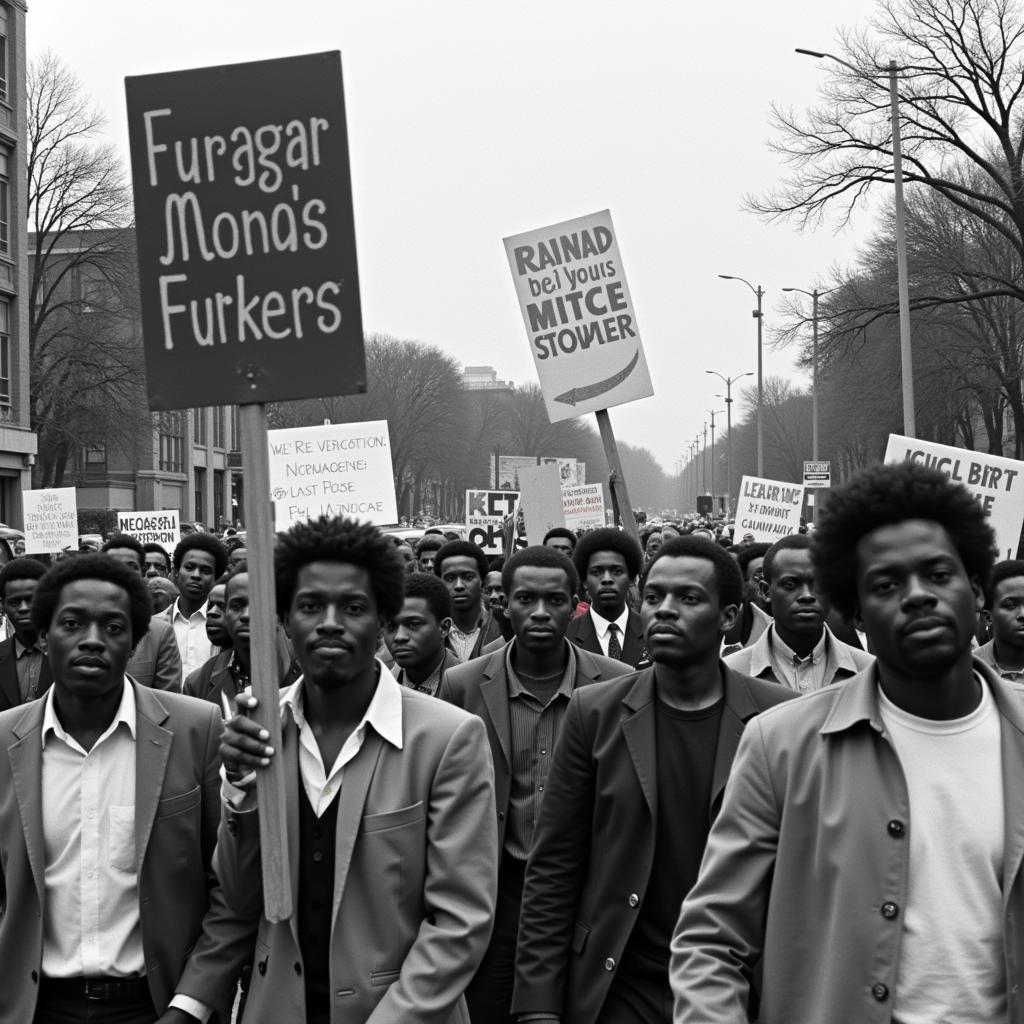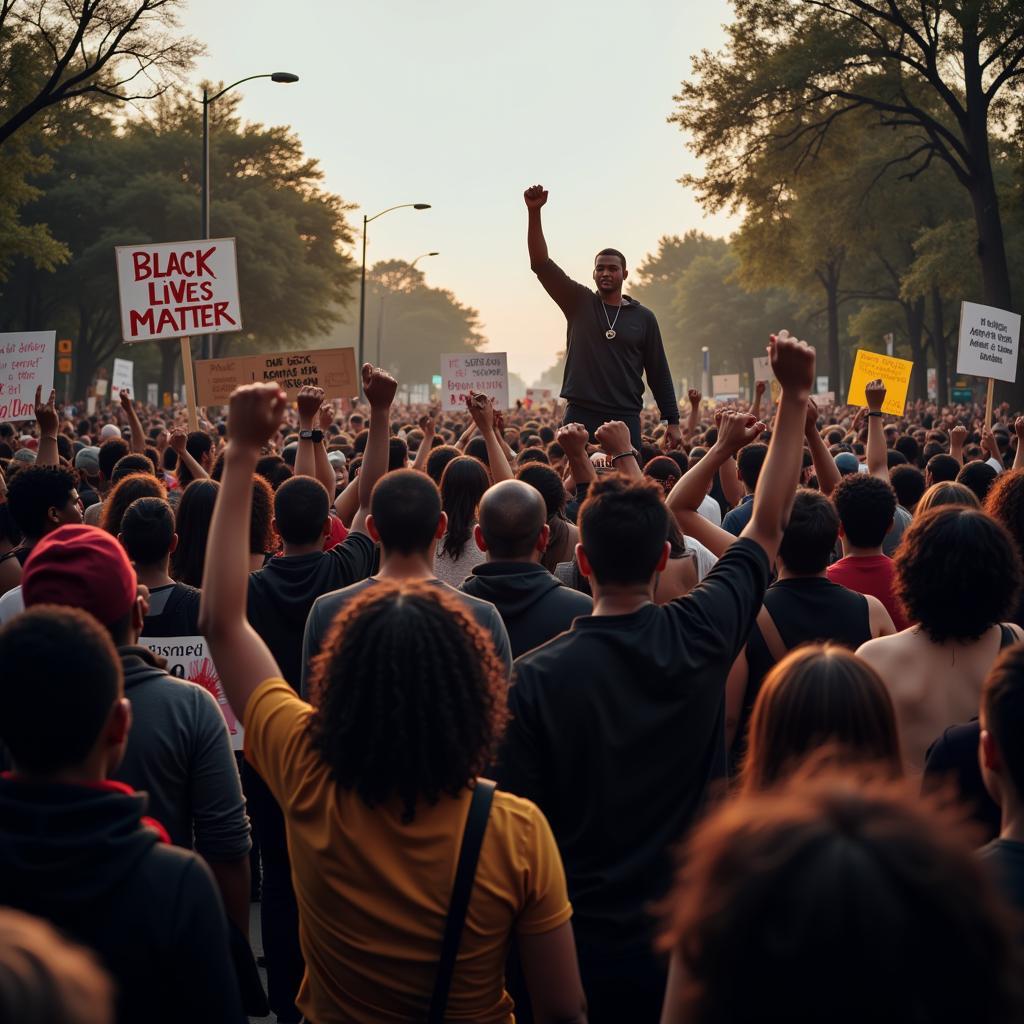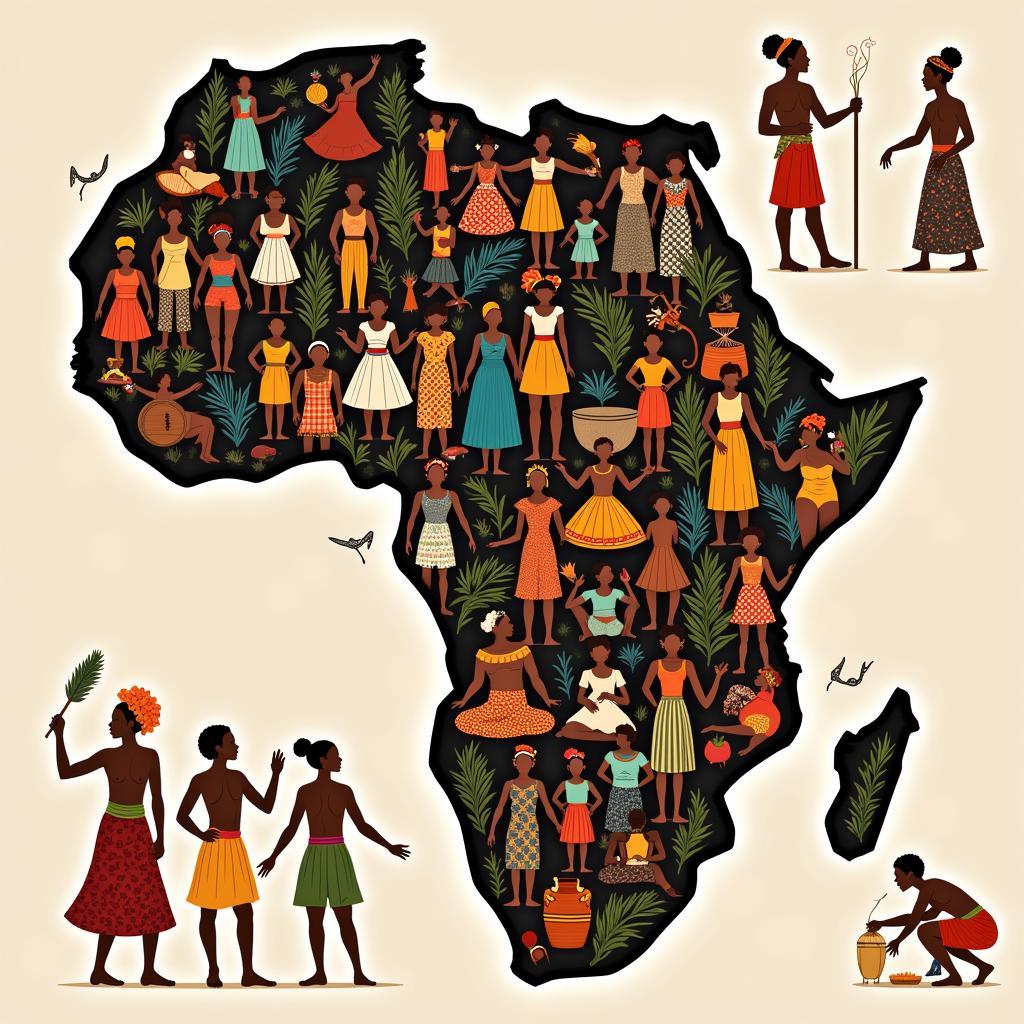African American Racism Today: A Continued Struggle
The legacy of racism continues to permeate American society, casting a long shadow over the lives of African Americans. While significant strides towards equality have been made since the Civil Rights Movement, “African American Racism Today” remains a stark reality, manifesting in various forms, from subtle biases to systemic discrimination.
The Enduring Impact of Historical Racism
Understanding African American racism today requires acknowledging the deep-rooted historical context. Centuries of slavery, segregation, and Jim Crow laws have created deep-seated inequalities that persist in the present. This historical trauma continues to shape the experiences of African Americans, influencing their socioeconomic opportunities and interactions with institutions.
 African American Civil Rights Protest
African American Civil Rights Protest
Systemic Racism: Pervasive and Insidious
Systemic racism, a deeply ingrained form of prejudice woven into the fabric of societal structures, plays a significant role in perpetuating racial disparities. It manifests in various sectors, including:
Criminal Justice System
The overrepresentation of African Americans in the criminal justice system is a glaring example of systemic racism. From racial profiling and discriminatory sentencing practices to police brutality, the system often operates with inherent biases that disproportionately target and harm African Americans.
Economic Inequality
Generational wealth gaps and discriminatory lending practices contribute to the economic disparities faced by many African Americans. Limited access to quality education, healthcare, and housing further exacerbates these challenges, perpetuating a cycle of poverty and disadvantage.
Healthcare Disparities
African Americans experience significant health disparities compared to other racial groups. Factors like implicit bias in healthcare settings, lack of access to quality care, and environmental injustices contribute to higher rates of chronic illnesses and lower life expectancies.
 African American Family Facing Eviction
African American Family Facing Eviction
Microaggressions: The Everyday Toll of Racism
While overt acts of racism are widely condemned, microaggressions, subtle yet pervasive forms of discrimination, often go unnoticed or unaddressed. These everyday slights and insults, intentional or unintentional, can have a cumulative and damaging impact on the mental and emotional well-being of African Americans.
Examples of Microaggressions:
- Making assumptions about someone’s intelligence or work ethic based on their race.
- Clutching your purse or bag tighter when an African American person walks by.
- Complimenting an African American person’s English, implying surprise at their fluency.
- Avoiding eye contact or crossing the street when you see an African American person approaching.
These seemingly small acts can contribute to feelings of invisibility, isolation, and dehumanization, highlighting the insidious nature of everyday racism.
The Fight for Equality Continues
Despite the ongoing challenges, the fight for racial justice and equality continues. The Black Lives Matter movement, ignited by the tragic deaths of unarmed African Americans, has sparked a global conversation about systemic racism and police brutality, amplifying the voices and experiences of those demanding change.
 Black Lives Matter Protest for Racial Justice
Black Lives Matter Protest for Racial Justice
Moving Forward: Building a More Equitable Future
Addressing African American racism today requires a multifaceted approach:
- Acknowledging and understanding the historical context of racism.
- Dismantling systemic racism in all its forms.
- Promoting diversity, equity, and inclusion in all aspects of society.
- Educating ourselves and others about the realities of racism and its impact.
- Supporting organizations and initiatives working towards racial justice.
- Holding individuals and institutions accountable for racist actions and behaviors.
By working together, we can create a more just and equitable society for all.
Frequently Asked Questions about African American Racism Today
1. What are some examples of systemic racism in the United States?
Systemic racism manifests in various sectors, including the criminal justice system, education, healthcare, housing, and employment. Examples include racial profiling by law enforcement, discriminatory lending practices by banks, and disparities in access to quality education and healthcare.
2. What is the difference between racism and prejudice?
Prejudice refers to preconceived opinions or feelings about a person or group based on stereotypes or generalizations. Racism, on the other hand, involves prejudice plus power. It’s about a dominant racial group using its power to maintain its advantage and oppress other racial groups.
3. How can I be an ally to the African American community?
Being an ally involves listening to and believing African Americans’ experiences, educating yourself about racism, speaking out against injustice, challenging your own biases, and supporting organizations working for racial justice.
4. What are some ways to address microaggressions?
Addressing microaggressions involves calling them out when you see them, educating others about their impact, and creating a culture where people feel safe speaking up about their experiences.
5. What are some resources for learning more about African American history and culture?
Reputable organizations like the National Museum of African American History and Culture, the NAACP, and the Southern Poverty Law Center offer valuable resources for deepening your understanding.
Explore More About African Culture
Interested in learning more about African culture? Discover the beauty and craftsmanship of African beadwork for sale and the vibrant fashion of African bridal party dresses.
Need Help? We’re Here for You
For further assistance or inquiries, please don’t hesitate to contact us:
- Phone: +255768904061
- Email: kaka.mag@gmail.com
- Address: Mbarali DC Mawindi, Kangaga, Tanzania
Our dedicated customer support team is available 24/7 to assist you.


